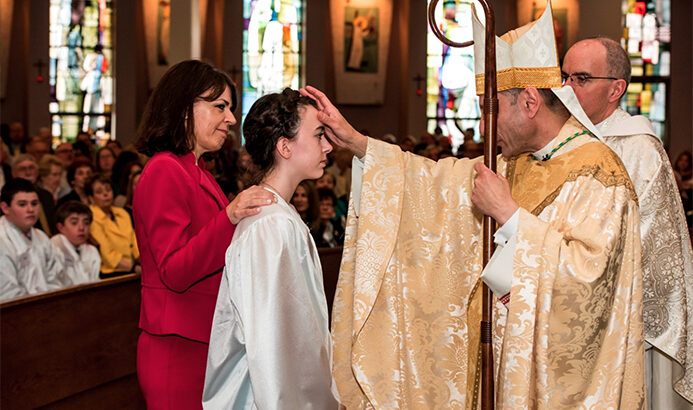Sacraments in a Synodal Church, by Noel O’Sullivan (Veritas, €19.99)
This is a book intended to be very much of the moment.
With many years of work in both primary and secondary education, Dr Noel O’Sullivan lectures in systematic theology at St Patrick’s College, Maynooth. So, he knows how things are meant to work and also how in ‘real life’ they do, or indeed, don’t work.
In seeking to energise the Church today Dr O’Sullivan accepts that a sacrament, like say Confirmation, has become a mere rite of passage in today’s world.
At one time the sacraments were accepted as an important part of the annual round of the life of many people, an essential factor in how they lived. This is no longer so true.
Nominal
For though large numbers tell the census that they are ‘Catholic’, this is sometimes only in a nominal way. What the Church teaches, what Catholics believe, and what Catholics do are becoming more incoherent these days.
In this difficulty, the seven chapters and the general conclusion of this book, which is intended for a wide readership, rather than just students, will meet a widely felt need.
Dr O’Sullivan wishes, so he says, to explore the history and nature of the sacraments of the Church, and (what is important in the present context) the role of a synodal laity in their development and continued celebration over the centuries.
It will be of immense help to those who may feel they would like to join in the present discussions, but feel that all too often they are taken over by those with stronger voices than they, but less charity.
Many have come to think that it is not the essence of the sacraments that needs to change but the presentation of them.
Many will be all too aware of controversies over the Mass, the Eucharist, and Baptism. But look rather at Conformation, which is one of the rites of passage the author refers to. It is a matter of importance to many families.
All societies have their young people, men and women, pass through those ‘rites of passage’ between childhood and adult maturity, as he notes. In classical times in Rome society a male was presented by his father with an all-white toga (the toga virilis) on reaching puberty, say about 14.
When one is unlikely to see 50, an early date for these religious and civil rituals had relevance. But does it today, or did it ever?
It has seemed to many that the age at which confirmation is offered is too young. Physical maturity is reached earlier in western societies, but not social maturity. Would it not be better if it were offered later, say about 16, rather than at the move from primary to secondary school as is now the case?
Development
To fulfil the historical development of the sacraments that Dr O’Sullivan so clearly outlines in these pages, this would certainly be better. And so, some other Christian traditions (who still maintain the traditional sacraments) have thought.
One would hope to see mature discussion of this among parishioners soon. It would be a great social change, but one more in keeping with a full adult profession of faith, which was what Confirmation was once intended to be. The theology needs rethinking.


 Peter Costello
Peter Costello Confirmation, the moment of anointing
Confirmation, the moment of anointing 